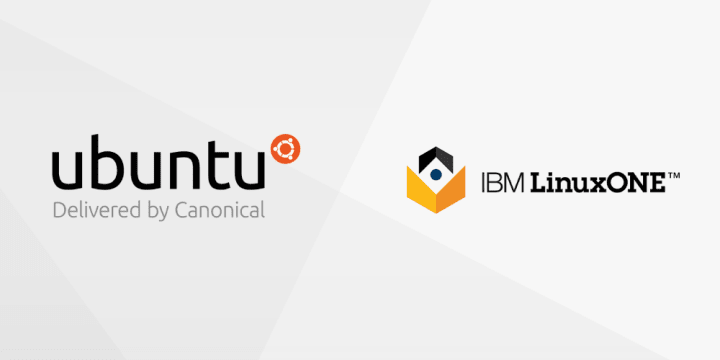Scalable, secure access to data with DBaaS on IBM LinuxONE
Canonical
on 5 April 2017

Imagine a world where developers can quickly stand-up new applications and database instances – without having to worry about limits to database growth or risks to data security.
Now imagine a world where enterprises and service providers can combine this outstanding scalability and security with the benefits of relational and NoSQL data in the cloud – so avoiding the need to install, configure or maintain the underlying database.
This is the world of Database-as-a-Service on LinuxONE, and it was previewed at IBM InterConnect, as well now being available as a reference architecture.
Database-as-a-Service – or DBaaS as it’s commonly known – makes life simpler both for enterprises extending their capabilities into new data types, and for Cloud Service Providers looking to offer additional services to their customers.
DBaaS can also make life easier for infrastructure sysadmins, database administrators and service provider developers – as well of course for next gen application developers.
DBaaS on LinuxONE
IBM has designed a reference architecture which explains how to set up Database-as-a-Service on LinuxONE.
| Applications | ||
| DB2 | PostgreSQL | MongoDB Enterprise |
| Ubuntu OpenStack with Trove | ||
| Ubuntu Linux | ||
| IBM LinuxONE | ||
The key DBaaS components – shown in blue in the above diagram – are:
- A choice of databases – starting with IBM’s DB2, the open source relational database PostgreSQL, and the NoSQL database
- MongoDB Enterprise – and extendable to other database
- Ubuntu OpenStack – providing IaaS function and management – plus Trove (a component of OpenStack) which offers DBaaS capabilities
- Ubuntu Linux – providing the underlying operating system
- IBM LinuxONE – offering scalable, fast and secure server hardware
Both Ubuntu OpenStack and Ubuntu Linux are provided by Canonical. IBM is partnering with Canonical for the DBaaS on LinuxONE reference architecture because of Ubuntu’s market leadership in cloud computing, as shown for example in recent OpenStack user surveys, as well Ubuntu’s popularity with next gen application developers.
LinuxONE delivers an infrastructure with the outstanding speed, scalability and security needed to underpin hundreds and thousands of DBaaS instances:
- Speed through dedicated I/O co-processors which offload the main processors, resulting in higher database performance
- Scalability with the ability to scale vertically as well as horizontally, avoiding the need to split databases into shards
- Security through hardware cryptography and the highest level of security protection between logical partitions
DBaaS on LinuxONE combines the best of Linux and Open with the best of Enterprise Computing, to simplify delivery of next gen applications working with today’s corporate and big data. The reference architecture is just the first step – watch this space for more developments.
Next Steps
Explore the reference architecture online
Access the DBaaS scripts and patches here
Watch an online demo of DBaaS on LinuxONE
Find out more about how IBM LinuxONE can give you the competitive edge
Article written by Michel Considine, IBM LinuxONE Offering Management, and Adam Jollans, IBM LinuxONE Marketing. Original post
Smart operations, optimal architecture, better pricing.
OpenStack and Ubuntu bring automated deployment and management that help you optimize infrastructure costs — no matter your industry or use case.
Newsletter signup
Related posts
OpenStack cloud – happy 15th anniversary!
Happy birthday, OpenStack! It’s astonishing how fast time flies – fifteen years already. Yet, here we are: OpenStack cloud still stands as a de facto standard...
Join Canonical at the first-ever African OpenInfra Days
For the second time, and in less than one month, Canonical is coming to East Africa! Three weeks ago, we had the first-ever UbuCon Africa, which was...
OpenStack PoC? No problem!
Setting up a proof of concept (PoC) environment is often one of the first steps in any IT project. It helps organizations to get to grips with the technology,...
